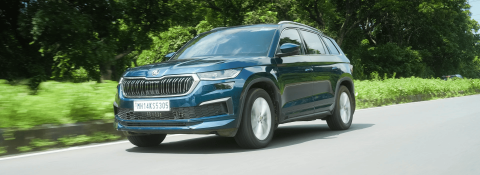Skoda Auto Volkswagen India Calls for Long-Term Tax Vision to Aid Automotive Development
In a recent interaction, Piyush Arora, MD and CEO of Skoda Auto Volkswagen India Pvt Ltd (SAVWIPL), emphasized the importance of a long-term tax structure for various automotive technologies to support extensive product development and significant investments. Arora highlighted India's strategic relevance for the Volkswagen Group brands—Skoda, Volkswagen, Audi, Porsche, and Lamborghini—while also addressing opportunities in electric vehicle (EV) penetration and expanding market share through targeted initiatives. He reaffirmed the company's commitment to collaborating with local partners, diversifying product offerings, and boosting exports to achieve sustainable growth in India.
Industry Wishlist: Long-Term Tax Structure for Automotive Technologies
Product development cycles demand stability:
Arora stressed that the automotive industry requires a consistent tax structure to facilitate long-term product planning and investment.
A clear vision on duties for emerging technologies such as EVs would enable automakers to align with government sustainability goals.
Government support for electric mobility:
The CEO acknowledged recent steps by the Indian government to promote electric vehicles, including demand creation and favorable tax policies.
India: A Strategic Market for Skoda Auto Volkswagen Group
Focus on diverse customer requirements:
Arora stated that the group views India as a critical market and is committed to addressing diverse consumer needs by introducing more products.
Collaboration with local partners is a potential strategy to enhance product reach and efficiency.
Building on a strong ecosystem:
With over 25 years of presence in India, the group has developed a robust ecosystem, including innovative products tailored to local preferences.
Partnerships will only be pursued if they present a win-win scenario for all stakeholders.
Expanding Product Portfolio and Market Share
Compact SUVs as a growth driver:
The launch of the compact SUV Kylaq is expected to expand Skoda’s market reach, catering to nearly 60% of the Indian passenger vehicle segment.
Arora noted that almost 30% of over 4 million cars sold in India belong to this segment, making it a crucial market for growth.
Increasing market penetration:
Previously, Skoda Auto addressed only 30-40% of the Indian passenger vehicle segment, limiting its market share.
Kylaq provides an opportunity to democratize European technology for Indian customers and boost the company’s presence in this competitive space.
Electric Vehicles: A Key Growth Segment
Projected EV penetration:
The company aims to participate actively in the electric vehicle segment, which is expected to reach 15-25% penetration by 2030.
With sustainability becoming a priority, Skoda Auto is aligning its strategies to meet consumer demands for zero-emission vehicles.
Exploring Export Opportunities
Expanding into Vietnam:
Skoda Auto plans to export parts and car kits for assembly in Vietnam, focusing on models such as the Kushaq and Slavia.
A new parts center at the Pune plant will support this initiative, enhancing operational efficiency and market reach.
Export-driven growth strategy:
Arora reiterated the group’s commitment to leveraging export opportunities as a means to boost revenue and establish a stronger global footprint.
Collaboration and Innovation for the Future
Potential partnerships:
Although unconfirmed, Skoda Auto has been linked to Indian firms like Mahindra and JSW for potential collaborations to strengthen its local operations.
Commitment to innovation:
The company’s efforts to introduce technologically advanced and customer-centric vehicles reflect its commitment to driving innovation and sustainability in the Indian market.
